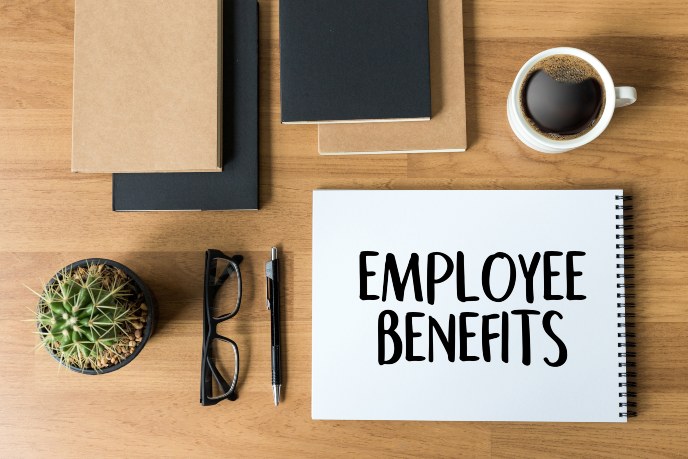There’s no doubt that the jobs market is in a state of flux, due to a combination of factors including the pandemic and Britain’s withdrawal from the EU. Attracting and retaining the best employees has become a challenge for many businesses.
Offering benefits such as a company car or medical insurance is a proven way to attract new staff while also boosting morale for your existing workforce. But what are the tax rules around benefits such as these? And what is the distinction between staff benefits and expenses? Here, we give an overview of the current UK tax position.
What counts as a taxable benefit?

Benefits that an employer receives in addition to salary are likely to be taxable. These includes ‘perks’ such as company cars, medical insurance, free or reduced interest loans, and phones used for personal as well as business purposes. These are known as ‘benefits in kind’ – a phrase which simply means assets or services that benefit the employee personally but aren’t included in salary or wages.
Employers can choose to ‘payroll’ benefits in kind, which involves calculating the cash equivalent and adding it to the employee’s weekly or monthly wages. Employees will then pay tax and National Insurance at the usual rates on the total ‘income’ including the value of any benefits. Alternatively, benefits in kind can be declared to HMRC via the end-of-year P11D form. Any taxes due will then be deducted via the employee’s PAYE tax code.
What is a ‘trivial benefit’?
What employee wouldn’t appreciate a small tax-free treat now and again? HMRC allows for the provision of ‘trivial benefits’, such as an occasional gift, meal in a restaurant, or tickets to an event. Crucially, the following points must all apply if the benefit is to be exempt from tax:
- it cost £50 or less to provide
- it isn’t cash or a cash voucher
- it isn’t a reward for their work or performance
- it isn’t in the terms of their contract
Benefits for each individual employee mustn’t exceed the value of £300 over a tax year. Employers don’t have to report these benefits to HMRC. However, if you are at all unsure, please do seek clarification from a tax and bookkeeping expert.
Expenses – when to reimburse staff
This is a complex area of taxation, but as a general rule employers should reimburse any costs that their employee incurs in order to fulfil the requirements of their job. There is no tax liability to the employee because essentially there has been no personal benefit. For example, an employee might be asked to send a client a bouquet of flowers. If the staff member was working from home or had no access to a company credit card, they might pay for the flowers using their own card. This expense can be reimbursed to the employee using the company’s in-house expenses procedure, and does not need to be reported by the employer to HMRC.
Employers do not have to reimburse certain work-related expenses, for example a construction worker’s upkeep of their own tools, or subscriptions to professional bodies. In this case, employees can look to obtain tax relief via the HMRC Form P87, or by registering for self-assessment and completing a tax return.
Homeworking – can employees claim expenses from bosses?
Working from home is not seen as a ‘benefit’ in terms of taxation. If employees choose to occasionally work from home (rather than being required to), employers are not liable to reimburse any expenses incurred, and neither can the employee claim any tax relief via HMRC.
However, the pandemic forced millions of UK employers to work from home, and even as restrictions lift it’s likely that working from home will become a continued requirement for many. Since April 2020, employers can reimburse workers up to £6 a week for any homeworking expenses incurred, such as increased utility bills or costs of ink for a home printer. The £6 a week can be paid without the worker providing evidence. For amounts over £6 a week, evidence of increased household costs must be provided.
Alternatively, it’s possible to claim up to £125 per year tax relief for working from home. This can be done via HMRC’s website, or through an employee’s self-assessment tax return.
For further information or advice about employee expenses and benefits, don’t hesitate to get in touch. Please give us a call on 01892 559480, or contact our friendly team via our online enquiry form.







